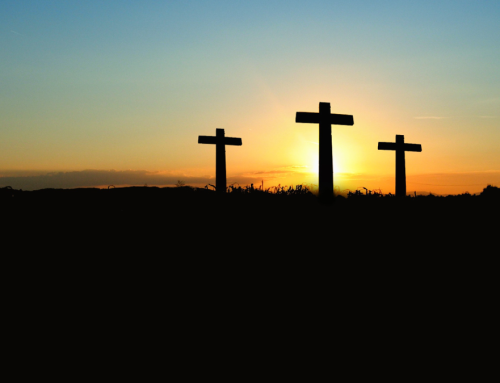The death of Jesus on the cross is the greatest act of humility that this world will ever experience. The Apostle Paul, in his letter to the Philippian church, describes how God became flesh and then humbled himself. It was not the act of becoming flesh that demonstrated humility, but that He took the lowest place of any man, woman, or child that ever has lived, or ever will live, and became obedient to death on the cross.
The humility of Jesus here on the cross is the precursor to Him honoring us in His death. This was a demonstration of honor in that He died because we were worth it. He saw our glorious potential as created in the image of the trinity, and He died so that we could be realigned with the original standard of relationship with the Father.
Jesus’ humility toward, honor, and justification of us are the most extraordinary acts. No other religion comes close to even claiming anything as extraordinary. That is because this is not religion, but love.
As I consider Christ, I see that He offered grace of the highest potency: grace that cost the son of God everything, and required the father to risk everything.
Bonhoefer described the opposite… “cheap grace”:
“Cheap grace is the grace we bestow on ourselves. Cheap grace is the preaching of forgiveness without requiring repentance, baptism without church discipline, Communion without confession…. Cheap grace is grace without discipleship, grace without the cross, grace without Jesus Christ, living and incarnate.”
Cheap grace doesn’t recognize or honor the price that Jesus paid. If I say that I do not need to repent of my sins on my journey of relationship, then I am questioning the act of Jesus on the cross.
While we were yet sinners is the statement of faith of Jesus. Before He could see our response to Him, He gave His all. It is not a true statement to say that before the cross we were sinners, and after it we are not. We are no longer sinners when we have entered into relationship with Him.
I increasingly think that it is an act of pride to say that we have no need of repentance or of cleansing ourselves with continual sanctification as we become like Christ. Pride is the opposite spirit to the spirit of humility, which took Jesus to the cross.
Yes, I have been sanctified, justified, and had imputed to me the righteousness of Christ; but to say that I can live in this fallen world without the smell of it tarnishing my glorious complexion is prideful and arrogant. I do not need to strive for this cleansing—I cannot achieve it. But the polar opposite of striving is to say that I have no need of daily, ongoing salvation and sanctification. I must position myself so that my heart is daily opened to the flow of his cleansing stream of love and forgiveness.
How can we honor the One who honored us before we were worth it? It is, I suggest by honoring and valuing what He did. It was a single event, but with a daily invitation to come before Him in our new relationship and desire to be like Him. To leave repentance as something we experience once, and to engage in sin without repentance because of the false belief that the one act gives license to live however we like, is an act of foolish pride. And pride comes before dishonor. I, for one, do not want to dishonor the One who, in His brutal death, honored me and gave me life.


